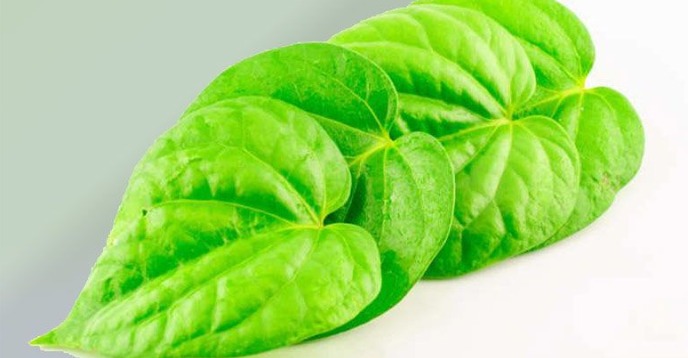Diabetes, a chronic metabolic condition, has become a significant global health concern. According to the World Health Organization (WHO), approximately 422 million people suffer from diabetes worldwide, with an alarming 1.5 million deaths annually attributed directly to the disease. Managing diabetes requires a multifaceted approach that includes medication, exercise, and most importantly, a healthy and balanced diet. Among the various dietary strategies, one intriguing natural remedy gaining attention is the practice of chewing betel leaves after dinner and before bedtime. This article explores the potential benefits, risks, and best practices associated with this traditional remedy.
Understanding the Role of Diet in Diabetes Management
Effective diabetes management hinges on controlling blood sugar levels, which is heavily influenced by dietary choices. Foods rich in nutrients and low in glycemic index help stabilize blood sugar levels, making them vital for individuals with diabetes. Betel leaf, traditionally known as “paan” in many Asian cultures, is one such dietary component that has been celebrated for its medicinal properties.
Betel Leaf: A Historical Perspective
Betel leaves have been a staple in traditional medicine for centuries, revered for their antiseptic, antioxidant, and anti-inflammatory properties. Historically, they have been consumed for digestive health and as a natural mouth freshener. However, modern research has begun to uncover their potential role in managing diabetes, making them a promising addition to contemporary dietary practices.
The Science Behind Betel Leaves and Diabetes
Betel leaves are a rich source of chromium, a trace mineral essential for maintaining normal blood sugar levels. Chromium plays a pivotal role in enhancing the action of insulin, the hormone responsible for regulating blood glucose. By improving insulin sensitivity, chromium helps reduce blood sugar levels effectively.

Image credit: blogspot.com
Benefits of Chewing Betel Leaves
-
Regulates Blood Sugar Levels: The chromium content in betel leaves aids in stabilizing blood sugar levels, making it a natural ally in diabetes management. When consumed after meals, betel leaves can help control postprandial blood glucose spikes.
-
Supports Digestive Health: Betel leaves are known to improve digestion and prevent issues like bloating and constipation. A healthy digestive system is crucial for people with diabetes, as it helps optimize nutrient absorption and metabolism.
-
Provides Antioxidant Protection: Rich in antioxidants, betel leaves combat oxidative stress, a condition often linked to diabetes complications. Antioxidants neutralize free radicals, reducing the risk of cellular damage and inflammation.
-
Slow Overnight Absorption: Chewing betel leaves before bedtime allows their active compounds to be gradually absorbed into the bloodstream overnight, promoting steady blood sugar control.
How to Incorporate Betel Leaves Into Your Routine
To harness the benefits of betel leaves:
-
Selection and Preparation: Choose fresh, pesticide-free betel leaves. Wash them thoroughly under running water to remove any impurities.
-
Consumption Method: Chew one betel leaf softly after your dinner. Once the leaf is devoid of juice, spit out the remains. Avoid swallowing the fibrous residue, as it may be hard to digest.
-
Frequency: Limit consumption to one leaf daily to prevent potential side effects from excessive chromium intake.
Potential Risks and Precautions
While betel leaves offer numerous health benefits, it is essential to consume them in moderation. Excessive intake can lead to adverse effects due to high chromium levels, including:
-
Weight Loss: Excess chromium may cause unintentional weight loss, which could be harmful to those already struggling with weight management.
-
Anemia and Low Platelet Count: Overconsumption may interfere with blood composition, leading to anemia and a decrease in platelet levels.
-
Organ Dysfunction: Long-term excessive intake has been associated with liver and kidney dysfunction, posing significant health risks.
-
Mouth Ulcers and Nerve Damage: Prolonged use may irritate the oral mucosa, causing ulcers or even nerve damage in extreme cases.
Avoid Harmful Additives
Betel leaves are often consumed in combination with areca nut and slaked lime, a practice that increases the risk of oral cancer and addiction. To reap the health benefits without the risks, avoid these additives entirely.

Image credit: indiatvnews.com
Scientific Evidence and Limitations
While anecdotal evidence and preliminary research support the efficacy of betel leaves in managing diabetes, more extensive clinical studies are necessary to establish their benefits conclusively. Until then, it is advisable to treat betel leaves as a complementary remedy rather than a standalone solution.
Betel Leaves in Holistic Diabetes Management
Betel leaves can be a valuable addition to a holistic diabetes management plan that includes:
-
Balanced Diet: Prioritize whole grains, lean proteins, healthy fats, and low-glycemic fruits and vegetables.
-
Regular Exercise: Incorporate at least 30 minutes of physical activity daily to enhance insulin sensitivity.
-
Stress Management: Practice mindfulness, yoga, or meditation to reduce stress, which can adversely affect blood sugar levels.
-
Routine Monitoring: Keep track of your blood sugar levels regularly and consult your healthcare provider for personalized advice.

Image credit: freepik.com
Conclusion: A Balanced Approach
Betel leaves, with their unique nutritional profile, offer a natural way to support diabetes management. However, they are not a cure-all and should be used in conjunction with a healthy lifestyle and medical guidance. Moderation is key, as overconsumption can lead to unwanted side effects. As with any remedy, consulting your healthcare provider is essential to ensure it aligns with your individual health needs.
Incorporating betel leaves into your routine can be a small yet impactful step towards better diabetes control. By embracing this ancient practice with modern sensibilities, you can work towards a healthier, more balanced life.




